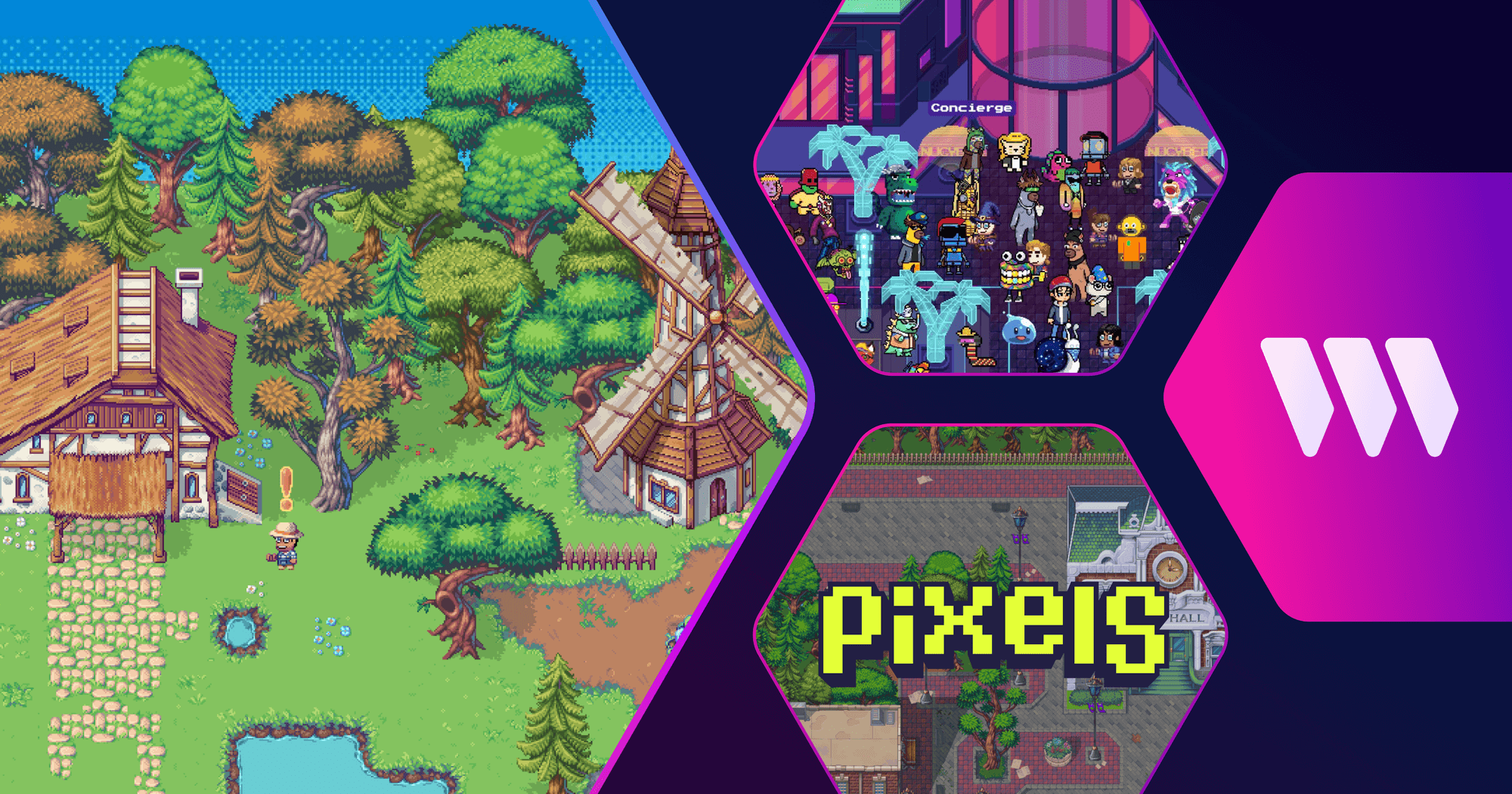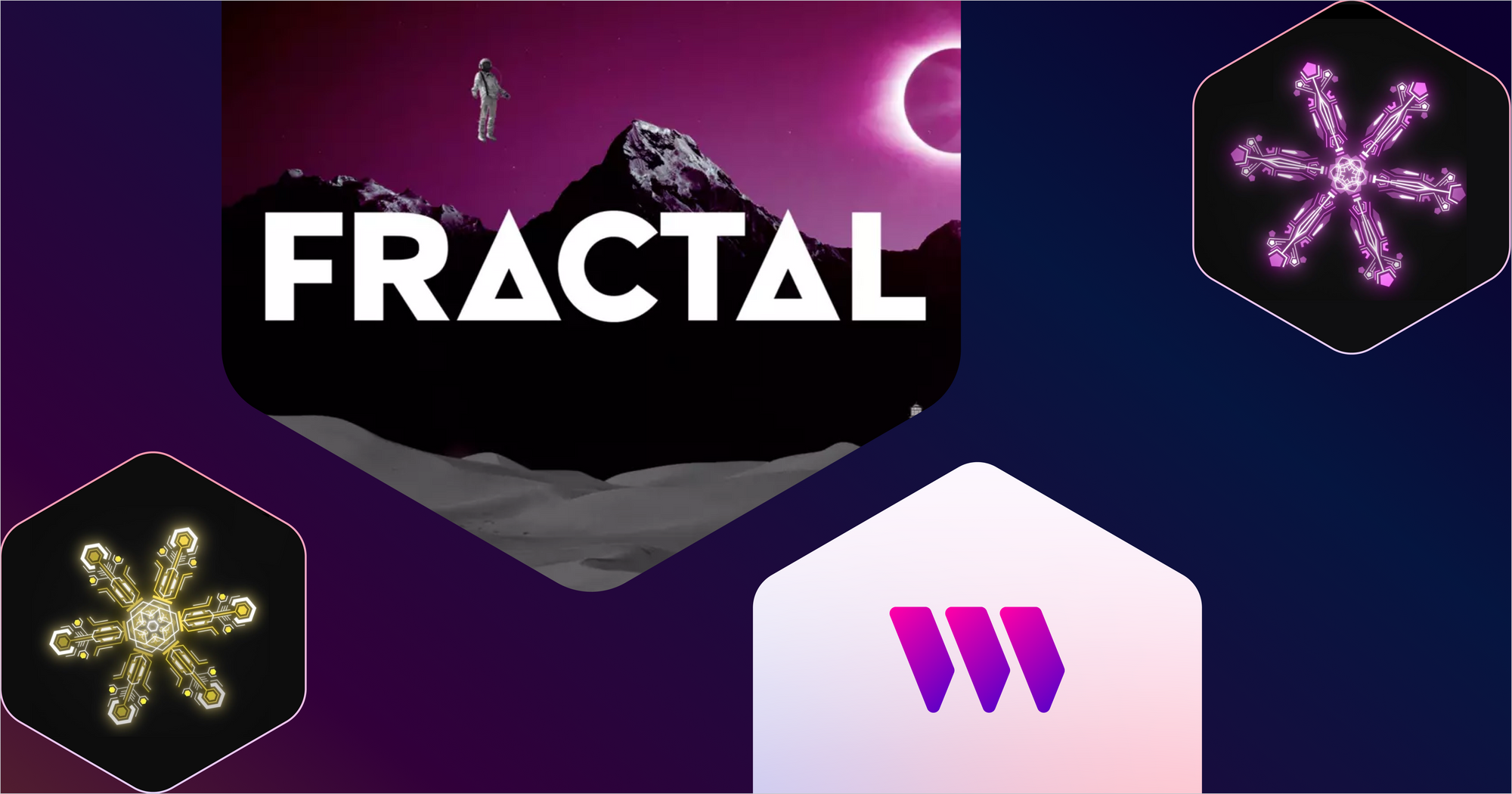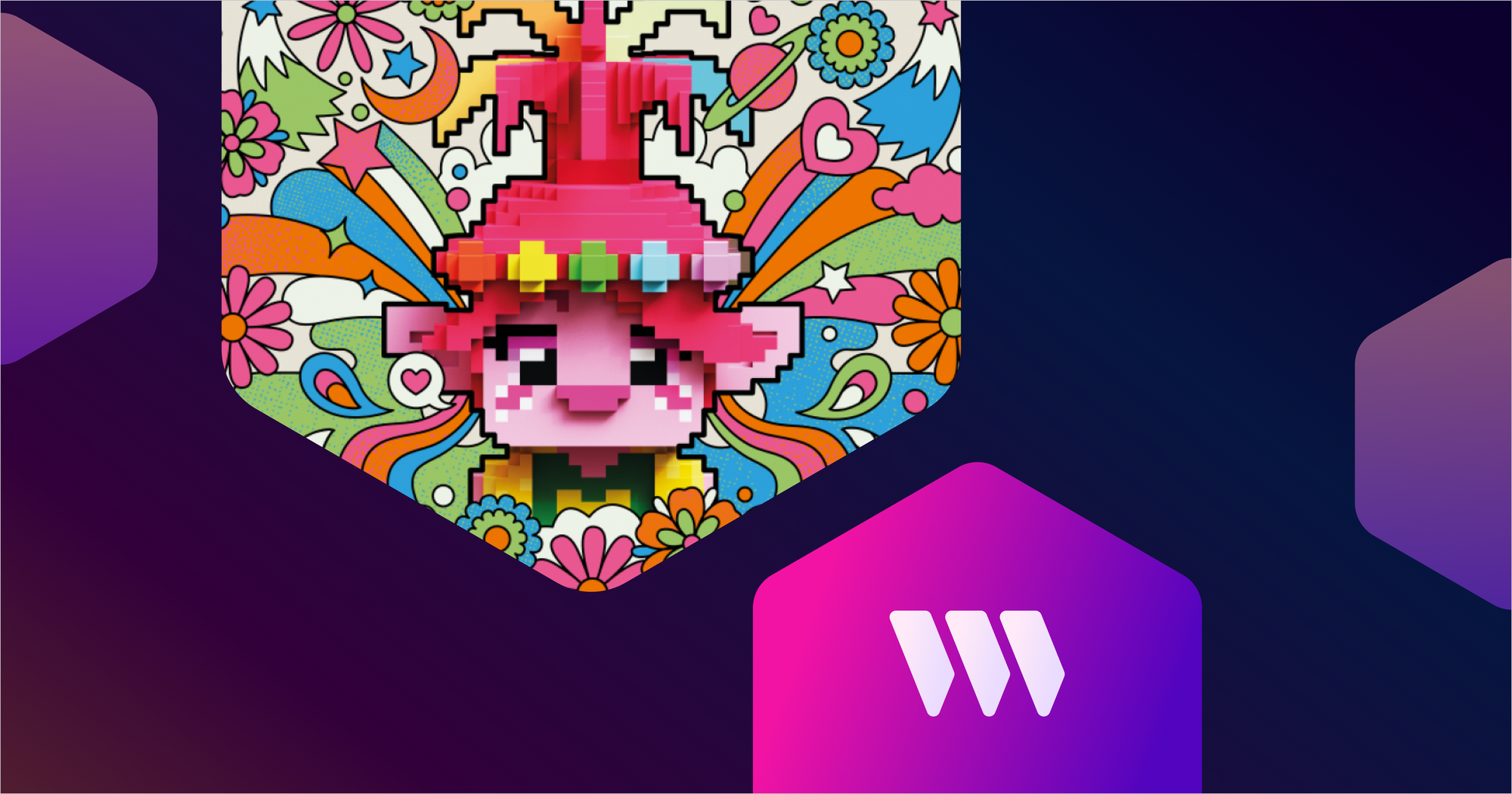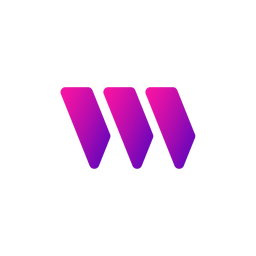What is Web3 Gaming? The Ultimate Guide
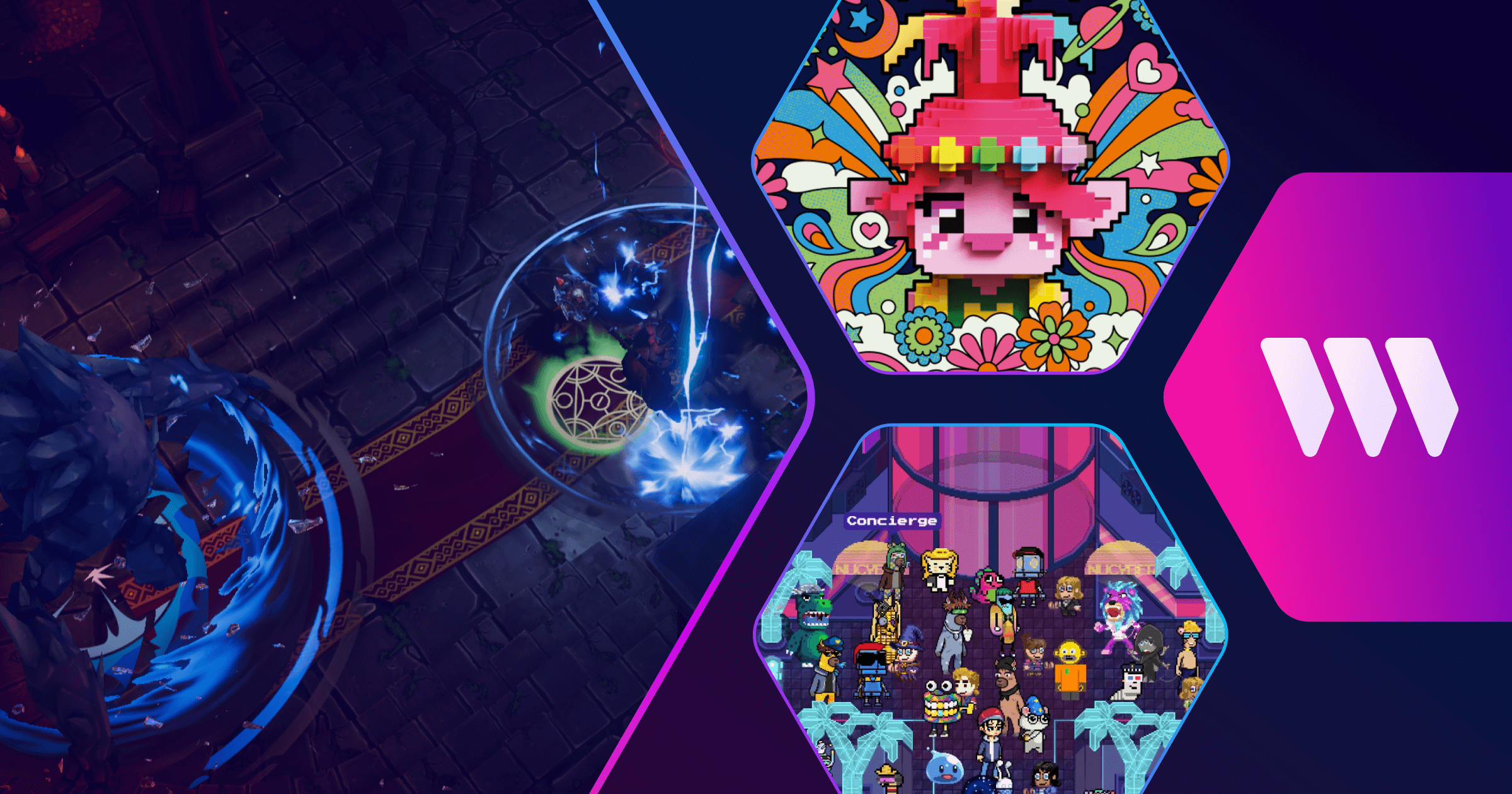
Gaming has seen explosive growth over the last decade — becoming a behemoth of an industry that’s worth over $200 billion.
But the gaming industry continues to face two age-old problems:
- For developers: To create a game on traditional infrastructure, developers need to build complicated backend systems that take years alone — raising the barriers to entry to create games.
- For players: In-game items are locked into closed ecosystems — meaning that players can’t capture any value from their investment of time & money.
But there’s a solution to both of these problems: blockchain gaming — primed to disrupt the entire gaming industry by providing true ownership for players, opening up new monetization opportunities for creators, and lowering the barriers to entry for developers to create games.
In this blog post, we'll cover what blockchain gaming is, the benefits of blockchain technology in games, and the powerful features that it unlocks in the gaming & development experience.
What are blockchain games?
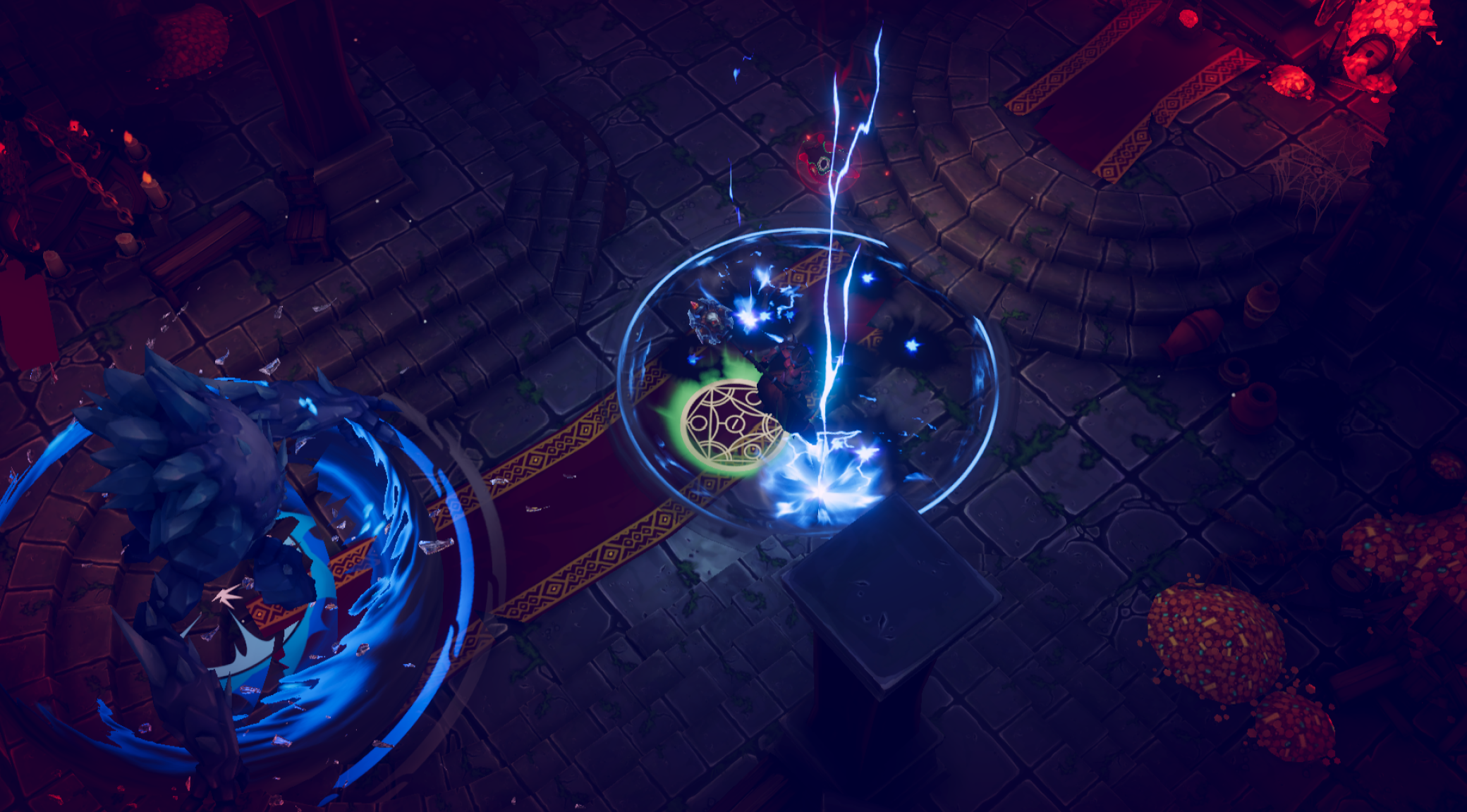
Blockchain games use cryptocurrencies, non-fungible tokens (NFTs), and the blockchain as part of a game’s architecture — accelerating the game development process & creating new revenue streams for developers, while also unlocking true digital ownership to players with open in-game economies.
For most people today, blockchain games are synonymous with “play-to-earn” models — which give blockchain-based games a reputation for being less immersive than traditional games, and more focused on the monetary aspect that comes with it.
This oversimplified version fails to capture both the value proposition of blockchain gaming, and the paradigm shift in the way gamers are engaging with and perceiving the games.
Integrating the blockchain into games unlocks many different things:
- NFTs allow for in-game assets to become interoperable — meaning they can have utility outside of the game & enabling players to trade them on open marketplaces.
- Wallets allow for users to authenticate & log into any game seamlessly. This allows them to use interoperable NFT assets in other games, buy & sell items with cryptocurrencies, and much more.
- A platform that can replace a game's traditional backend infrastructure — with built-in auth, payments, & database systems as blockchain primitives.
But why are these things important? Let's dive into what all of the above unlocks for both game developers & players, and what the advantages of blockchain games are over traditional games.
What are the benefits of blockchain games?
1. Lower time-to-market & development costs
Building the backend systems to support a full-scale game — with unlockable items, in-game economies & open marketplaces — takes years alone, dramatically increasing the barrier to entry for new game developers.
As a result, developers are turning to blockchain to make games much faster, cheaper, and easier to build — with the blockchain serving as an underlying platform & replacing traditional infrastructure.
And now, with innovation accelerating faster than ever to achieve scalability on Ethereum, Layer 2 networks are making it more accessible to build on the blockchain. And with the highly-anticipated Cancun upgrade coming to Ethereum, which will cut transaction costs by 10x, the blockchain is about to see its largest paradigm shift yet:
Rather than simply adding a layer of complexity for games, the blockchain can now serve as a best-in-class platform that replaces traditional backend infrastructure & supercharges the game development process.
Building on the blockchain reduces game development time from years to weeks, with hundreds of studios now using it to store data & run the games’ logic so that they can focus on what matters most: creating great games while also enabling true digital ownership for players with interoperable, blockchain-based in-game assets.
To demonstrate the power of the blockchain, we built Web3 Warriors — a full-scale onchain RPG — in less than 3 weeks. Learn how:
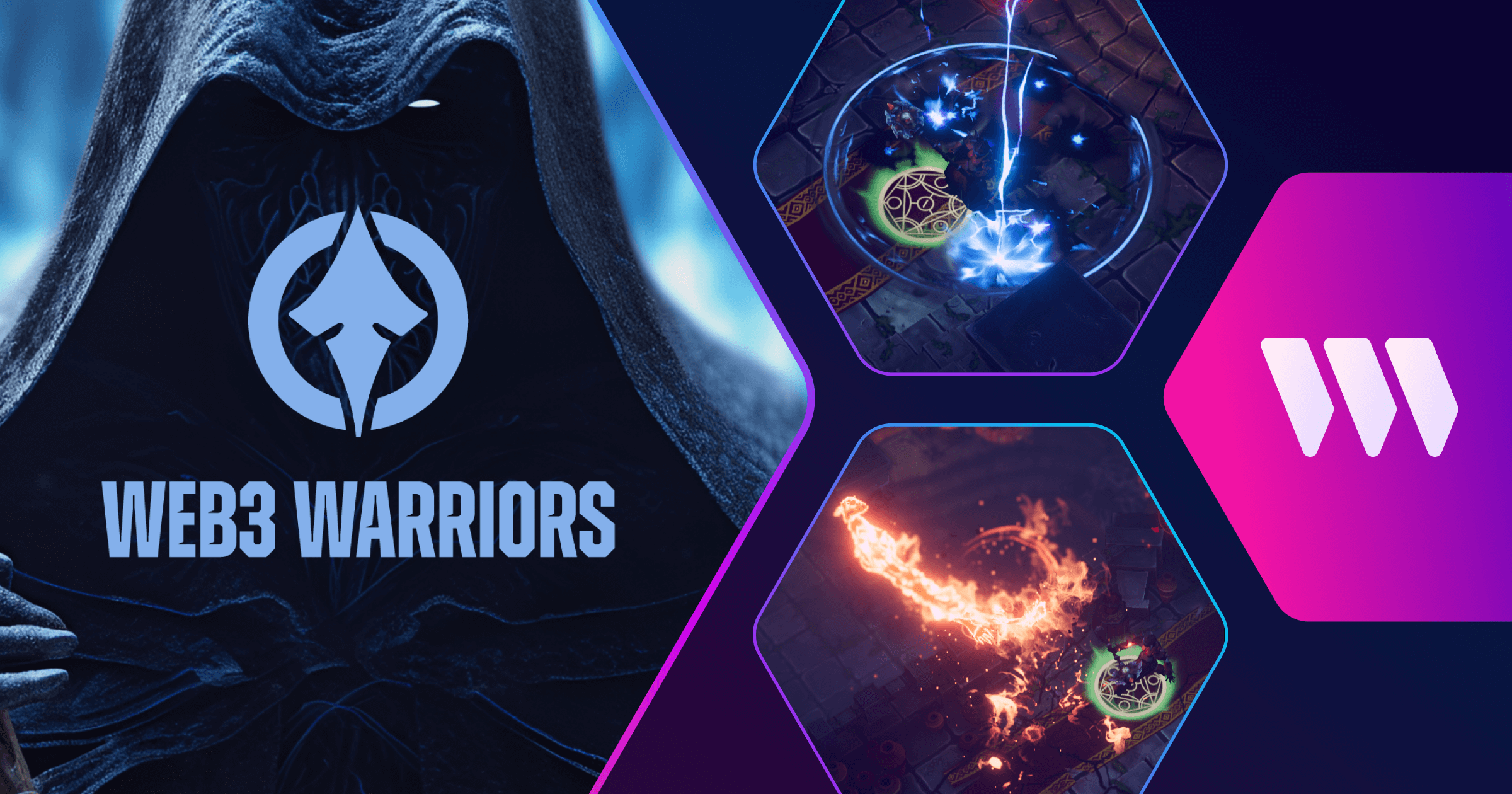
2. Digital ownership
The blockchain and NFTs combine to enable asset ownership in blockchain gaming, which is a facet that gamers don’t get in traditional games.
Gamers spend long hours building an in-game identity (player profile) and reputation (medals, skins, etc). The ability to monetize these is negligible in traditional games, thanks to closed in-game economies.
Adding on, gamers always fear that one terrible update might essentially kill their tokens of reputation once and for all.
True asset ownership relieves the gamer from all these headaches. The assets are truly owned by the gamers, and they are verifiable on-chain.
Along with the associated reputation, blockchain gaming allows gamers to extract the value of in-game items outside the gaming ecosystem. This can be through the ability to sell them for money, by using the item as a gateway to exclusive events, by building an on-chain reputation that can be integrated into other gaming ecosystems, and so on.
3. Composability
Composability is the ability for different components like blockchain, cryptocurrencies, NFTs, DAOs, dApps, and DEXs to co-exist and be integrated into one another.
For blockchain games, this means developers need not always build everything from scratch within the game. For example, game devs can integrate a DEX into a web3 game for asset exchange or use an identity solution like ENS to allow users to log in and start playing the game.
Gamers stand to gain a better user experience with all these components working together for them.
4. Permissionless interoperability
Anything built on smart contracts is interoperable & permissionless by nature. This allows for in-game NFT assets to be used across multiple games and platforms, making them more versatile than traditional in-game assets.
Rather than being locked into closed ecosystems, players can also buy, sell, and trade in-game items in open marketplaces. This creates a secondary market for in-game items, which can increase their value and provide players with ways to earn money from playing the game.
10+ Examples of Web3 Games
There are many blockchain games emerging recently — from MMORPGs, to first-person shooters, to mobile games. Some of the most popular examples by usage include:
1. Decentraland
Decentraland is a blockchain gaming platform on Ethereum where gamers can own a 3D virtual ‘LAND’ completely. ‘Landowners’ can then create any experience ranging from casinos to conferences on their land and monetize them.
Gamers can also interact with other lands to buy real estate, attend events, etc. bringing peer-to-peer communication to life.
2. Gods Unchained
Gods Unchained is a virtual cards and strategy game where users have to build card decks comprising a combination of 9 GODs to defeat their opponents. Also, the game uses Immutable X, a Layer-2 scaling solution to Ethereum, in a bid to improve finality times without compromising on security.
3. DeFi Kingdoms
DeFi Kingdoms is a role-playing game based on a medieval timeline. The game also offers a play-to-earn model for gamers with several DeFi integrations like staking and renting heroes. Heroes (NFTs) are avatars that gamers use to combat enemies and earn new rewards that they can convert into fiat money.
4. Web3 Warriors
Web3 Warriors is an onchain survival game that we built at thirdweb, where the primary aim is for players to defeat the dungeons and earn $BATTLE tokens. These are useful in upgrading characters by buying NFTs from the in-game shop.
We built Web3 Warriors using thirdweb GamingKit! Play the game:

5. Axie Infinity
Axie Infinity is a Pokemon Go-like game built on Ethereum where players collect, breed, and battle creatures called Axies. To tackle Ethereum’s infamous scalability problem, Axie Infinity uses Ronin, a gaming sidechain on Ethereum. Additionally, players can earn in-game rewards and trade their Axies on the NFT marketplace.
Other great blockchain games include:
How do you develop a blockchain game?
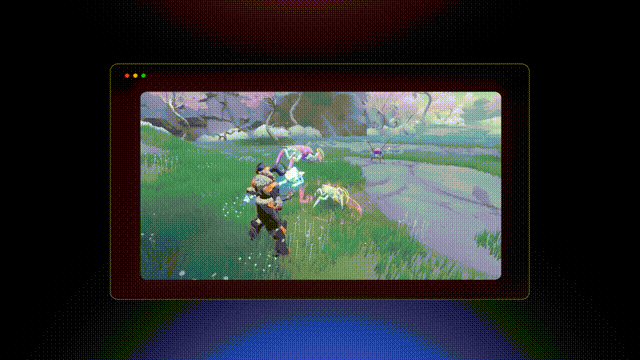
Blockchain games are built using similar game engines to those of traditional video games — but to integrate blockchain-based assets and currencies, those games need to be able to interact with smart contracts.
To do this, game developers must use an SDK that interacts with the game engine that they're building their game on, such as our GamingKit. You can learn more about this here:
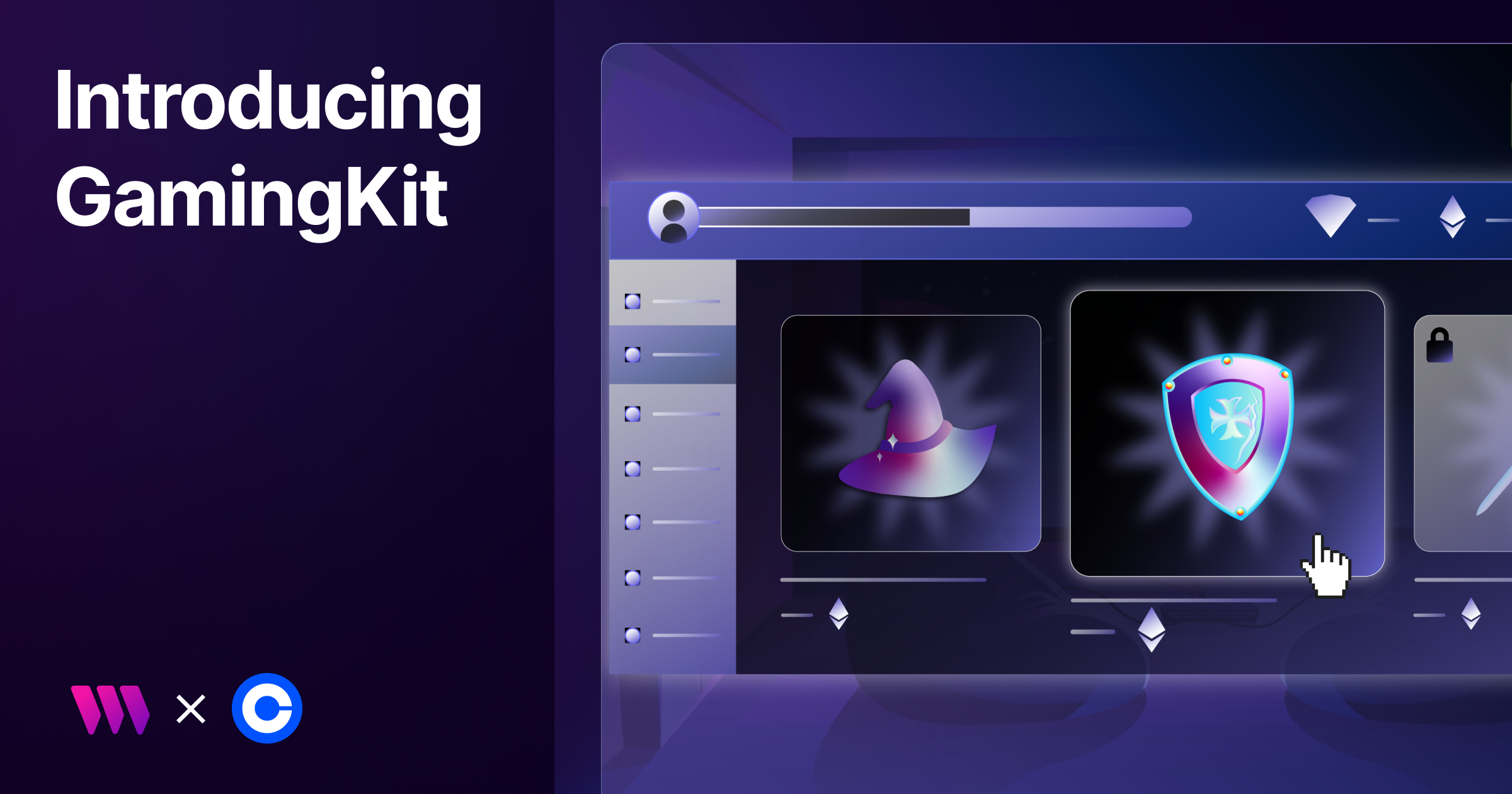
And here's everything you can use the blockchain for when building a blockchain game:
Blockchain-enabled backend
Developers use blockchain for the majority of the backend that powers the blockchain games. By being a single source of truth, blockchain provides an immutable way of recording user interactions and offers proof of activity.
Blockchains also reduce the dependency on the central server-client model for the storage of data. And the inherent immutability of blockchains also takes care of security and disallows any bad actor to corrupt the gaming infrastructure.
Moreover, onchain wallets are the first step into embracing true ownership in blockchain gaming.
While building blockchain games, developers need to prioritize invisible blockchain — a concept of stitching tech and games so well that gamers don’t necessarily feel the presence of cutting-edge tech.
Coded gaming logic
All interactions between gamers use smart contracts, reducing the need for centralized operation. Smart contracts enable a plethora of logic from decentralized economies to fair gameplay. Hereby, gamers avoid censorship and can truly own their game time and in-game assets, and extract the value of all those when they need.
NFT integrations
From tokenizing avatars to gatekeeping events, NFT integrations are invaluable to blockchain gaming. Their facet of verifiable authenticity opens up new possibilities for trading and transferability between gamers, opening several micro-economies within the ecosystem. For example, peer-to-peer NFT marketplaces.
Complexity abstraction
Developers need to abstract as much complexity as possible and provide a seamless gaming experience for gamers. Things like gasless NFT minting and fiat on-ramps are sure-shot ways to augment a better user experience in blockchain games. Especially for gamers, there is an imperative need for the abstraction of complexity as blockchain games are unnecessarily complex at present.
Decentralized governance
Traditional developers may skip this step as this requires native blockchain knowledge. Blockchain and web3 gaming provide the opportunity for gamers to vote on improvement proposals, storyline developments, etc. Decentralized governance can be seen as a design principle for developers to reduce single points of failure and engage the gamers at the same time.
Concluding thoughts: The future of gaming is on the blockchain
There is no doubt regarding the potential of blockchain gaming and its future. As more developers gain native blockchain knowledge, the overall pace of development improves with better tooling and Web2 integration support, like thirdweb’s GamingKit.
As development becomes easier, better iterations and testing are possible. In the end, we are looking at a near future where blockchain gaming turns mainstream.
The blockchain provides a better model for both game developers and players — and it’s the reason for which the creators of renown games like Fortnite, Grand Theft Auto, and PubG are moving to the blockchain.
We hope this blog post has helped you better understand what blockchain gaming is, the advantages it has over traditional games, and why it’s an important step forward in improving the gaming industry as a whole.
If you have any questions, join 40,000+ other builders in our Discord community — or reach out to the team directly for more info on how to get started with blockchain gaming.
And if you want to build games on any EVM-compatible blockchain, get started with thirdweb’s web3 tools & SDKs — they’re free!
Get started with blockchain game development
Here are some further resources on building games using the blockchain.
GamingKit
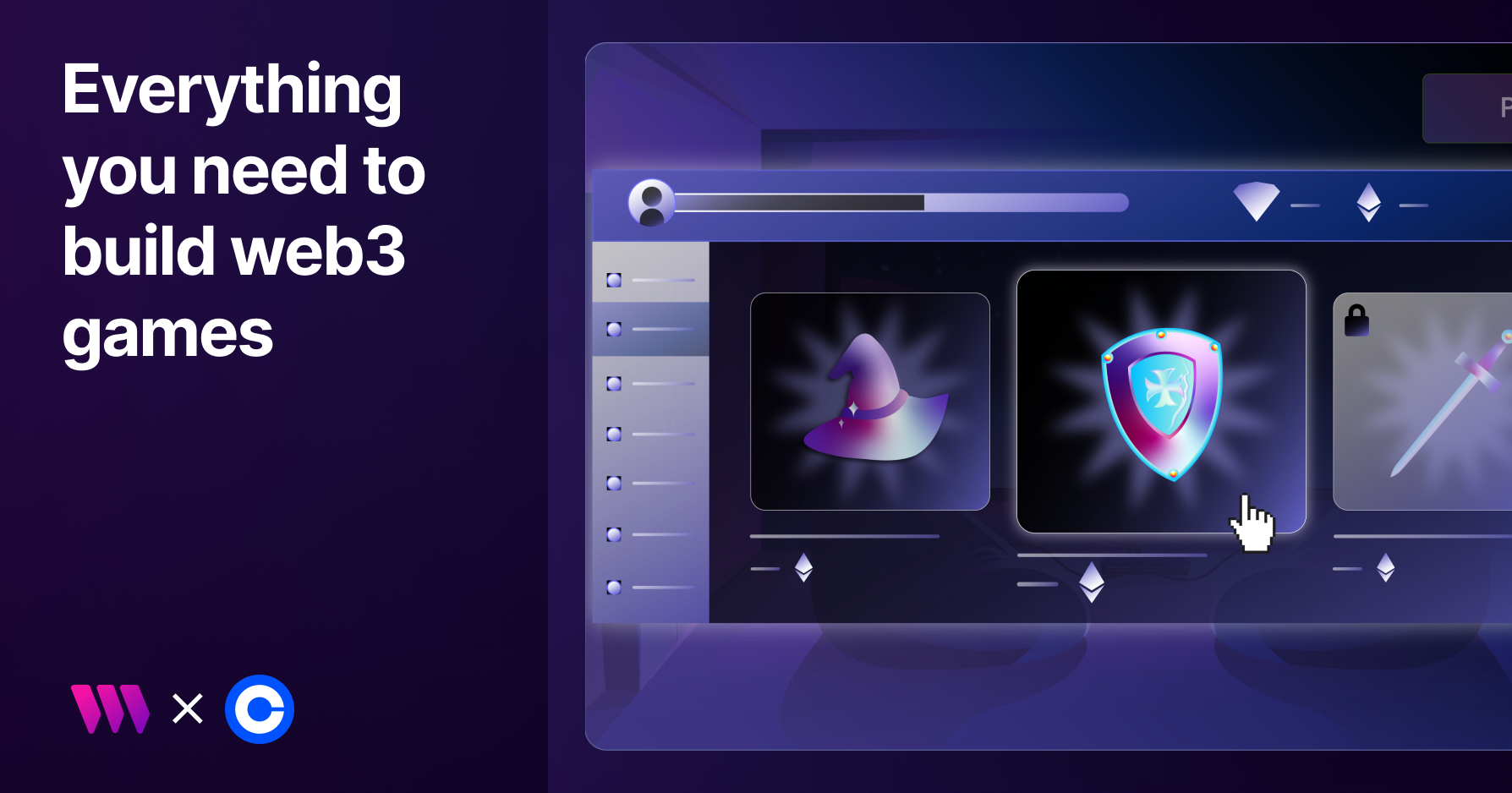
Quick-Start Gaming Guide

More Gaming Guides

YouTube Tutorials
Unity SDK Docs

Gaming Case Studies
